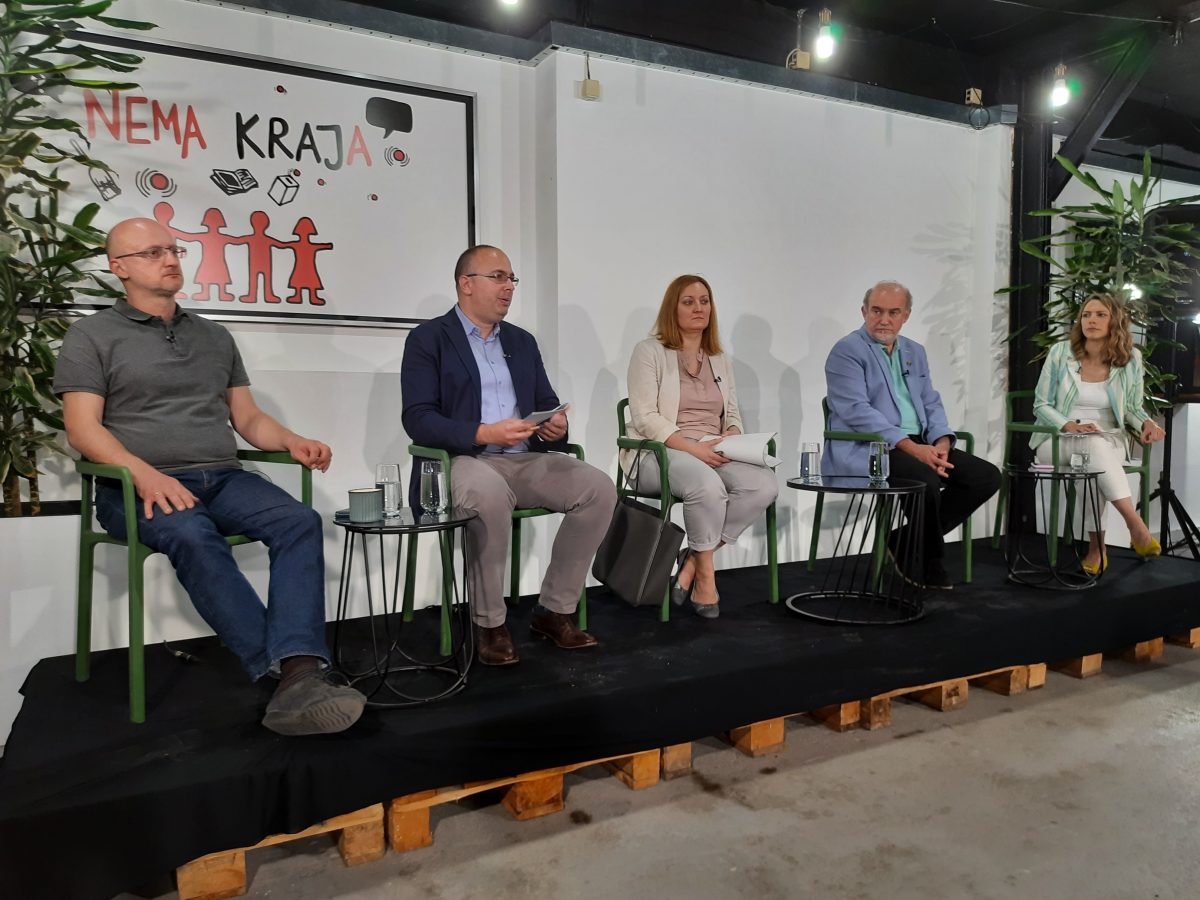Amendments to the Law on Free Access to Information of Public Importance reduce citizens’ rights and protect bodies of authority, concluded the participants in the event

Civil society organization Partners for Democratic Change Serbia (Partners Serbia) and the Coalition for Freedom of Access to Information organized a gathering on July 10, 2021 with the aim of ensuring a wider public debate on draft amendments to the Law on Free Access to Information of Public Importance.
The event was moderated by Partners Serbia Executive Director Ana Toskić Cvetinović, while the panelists were: Nemanja Nenadić of Transparency Serbia, Pavle Dimitrijević of the Center for Research, Transparency and Accountability (CRTA), Tanja Maksić of the BIRN media organization and Commissioner for Information of Public Importance and Personal Data Protection Milan Marinović.
The Ministry of State Administration and Local Self-Government (Ministry), which is in charge of amending the Law, and members of the working group which had drafted the Law on Amending the Law on Free Access to Information of Public Importance, were also invited but failed to appear.
At the very beginning, moderator Ana Toskić Cvetinović recalled that the process of amending the Law on Free Access to Information of Public Importance had lasted for more than three years, and that the obligation to amend this Law was envisioned under the Action Plan for Chapter 23, Action Plan of the Open Government Partnership, Public Administration Reform Strategy, Action Plan for the Implementation of the Media Strategy, etc. She said that, after a one-year pause, this process had resumed in January this year, when the Ministry established a new working group tasked with drafting the law. She recalled that the working group consisted only of representatives of bodies of authority, i.e., bodies of authority that had obligations under the Law, as well as the Commissioner for Information of Public Importance and Personal Data Protection, that the group did not include representatives of the media, academic community and civil sector, and that representatives of these sectors had joined the work of the working group only when the National Convent for the European Union and the Coalition for the Freedom of Access to Information reacted and Prime Minister Ana Brnabić intervened. They, however, were not formal members of the working group and did not vote for the final draft.
In the introductory speeches, most panelists said that the proposed draft significantly lowered the attained level of the right of the public to know, while failing to address the issues observed throughout the years of implementation of the Law.

In his introductory speech, Nemanja Nenadić of Transparency Serbia presented provisions which the Coalition for Freedom of Access to Information regarded as particularly detrimental and said that they were elaborated in the Crvene linije (Red Lines) document.
In his opinion, if the amendments are aimed at improving the Law on Free Access to Information of Public Importance and finding solutions to some issues encountered in practice, which is also said in different action plans in which the Law is mentioned, no deterioration such as those encountered now should be contained in any of its provisions.
He described as particularly detrimental the exclusion of religious communities and political parties from the entities with obligations under the Law and the inclusion of the National Bank of Serbia among entities against whom no complaint could be filed to the Commissioner in case of failure to provide information. Another disputable issue is that the current draft contained 9 possible grounds for restricting the right to access to information, while the previous one contained only 5, which shows that citizens’ rights in the field of access to information are reducing.
Pavle Dimitrijević of CRTA spoke about the importance of proposed amendments for citizens and civic engagement. He observed in his speech that the amendments to this Law affected the fate and rights of all Serbian citizens and left the impression of giving preference to public authorities and violating citizens’ rights.
Tanja Maksić of BIRN pointed out that the already acquired rights had to be defended once again, stressed that this Law was an extremely important tool for the media and said that every time a public authority denied information to a journalist, it deprived the public of the right to know.
Commissioner Milan Marinović pointed out that it was not good that the Ministry, as the proponent of the Draft, had not organized a public debate like the one organized by the Coalition for the Freedom of Access to Information, and that he agreed with the Red Lines presented by civil society representatives. He said that the main problem was the lack of enforcement of decisions issued by the Commissioner for Information of Public Importance and Personal Data Protection, and the lack of Government reaction in cases in which it had to ensure the enforcement of the Commissioner’s decisions. He said that a positive solution in the Draft was the possibility given to the Commissioner for Information of Public Importance and Personal Data Protection to issue misdemeanor orders to public authorities that fail to comply with the applicant’s request within the statutory deadline.
Speaking about the oversight of the Law on Free Access to Information of Public Importance, which was recognized as one of the key issues in the implementation of the Law, and which was entrusted to the Administrative Inspectorate (at the Ministry) that insufficiently exercised its powers, he pointed out that he agreed with the initiative of the civil sector to put the Commissioner in charge of oversight, but that it was evident that there was not enough political will for this solution.
During the discussion, participants in the panel raised a number of other important disputable issues in connection with the Draft Law, including:
Mirko Popović of the environmental organization RERI, stressed that a particularly controversial new restriction was the one regarding environmental information and said that, if the Law was meant to be harmonized with environmental directives and conventions to which Serbia is a state party, this restriction failed to achieve this purpose, because the purpose of these international documents was to make environmental information as accessible as possible.
Rodoljub Šabić, former commissioner and now a private attorney, said that the fact that the number of restrictions on the right to access to information of public importance had increased showed that new restrictions were either unconstitutional, because they reduced the attained level of rights thus violating the Serbian Constitution, or redundant, because the interests that potentially conflicted with the right to information were already protected through the existing restrictions.
Several participants also mentioned the issue of determining who was accountable in a body of public authority if the authority failed to comply with the applicant’s request. They stressed that the proposed solution, according to which this could be either the head of the authority or the authorized person in the public authority acting on requests for access to information, was detrimental because the decision on whether information would be provided was in practice made by the head, i.e., the manager of the body of authority.
Finally, Ana Toskić Cvetinović invited all stakeholders to take an active part in the public debate on the Law and to submit their remarks and comments to the Draft Law to the Ministry of State Administration and Local Self-Government by June 16.